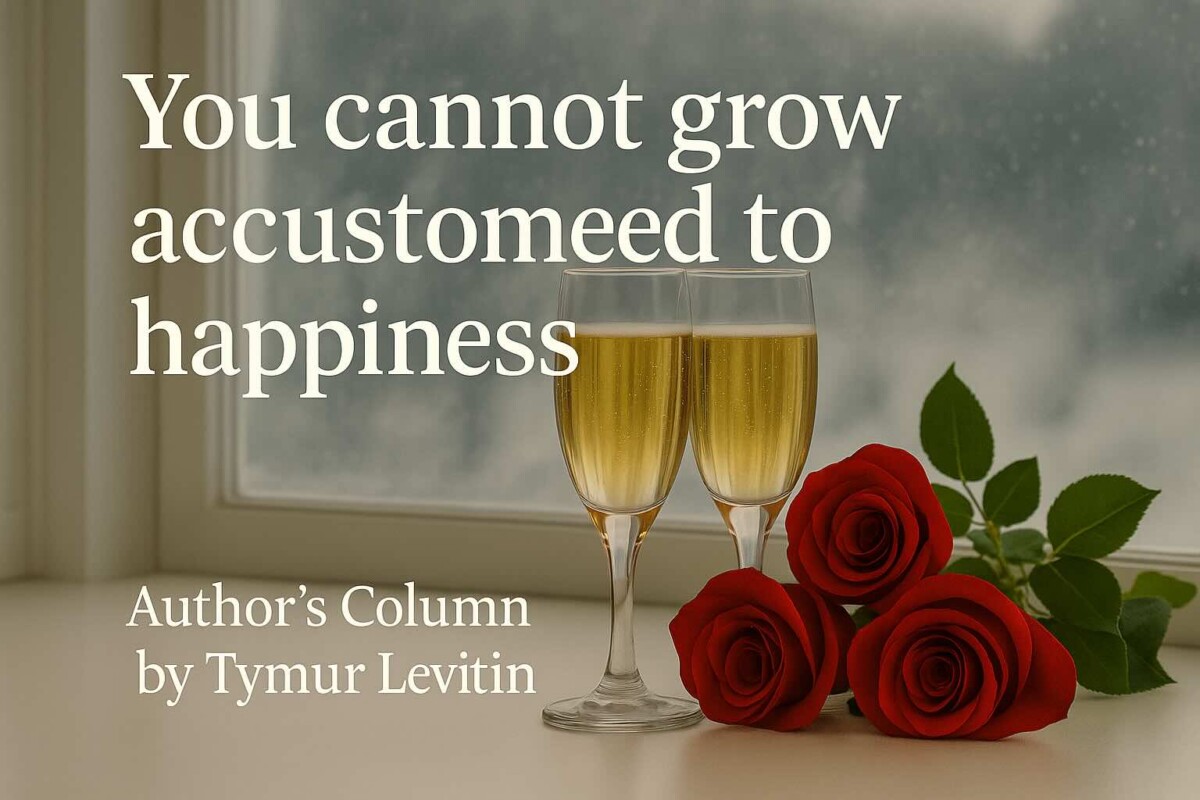(Based on the song “Ведь нет другой такой” by Mikhail Shufutinsky, 2016)
Introduction
There are songs where a single line becomes destiny.
In Mikhail Shufutinsky’s «Ведь нет другой такой», the line that defines the entire composition is:
«К счастью привыкнуть нельзя.»
You cannot grow accustomed to happiness.
This thought works on three levels:
- Language: as an aphorism;
- Voice: as intonation and timbre;
- Personality: as the singer’s life story.
When sung by Shufutinsky, we believe it — because his life stands behind these words.
When sung by Odintsov, it sounds gentle, romantic, but without that emotional “crack.”
When sung by others, the text remains just text.
The Phrase Itself
«К счастью привыкнуть нельзя.»
You cannot grow accustomed to happiness.
💬 The English version preserves the antithesis accustomed ↔ happiness, but the verb grow softens the statement. It becomes an observation, not a law.
Deutsch: An Glück kann man sich nicht gewöhnen.
💬 Precise and aphoristic, but colder — less intimate, more philosophical.
Español: A la felicidad no se puede acostumbrar.
💬 Poetic and melodious, categorical but abstract — felicidad lacks the personal warmth of счастье.
Українська: До щастя звикнути не можна.
💬 Closest in structure and emotion. The softness of Ukrainian adds tenderness.
Mini-Etudes — Verses and Translations
1. First Verse
«Вот ещё один год пролетел, будто миг…»
Another year has flown, like a moment,
Like fireworks flashing in the New Year’s night.
And champagne once again stands on our table today,
Though they all around say: “You got used to it.”
💬 The contrast is striking — celebration versus routine.
In English, got used to it sounds too mundane; in German, the aphoristic sharpness remains; in Spanish, the emotional tone survives; in Ukrainian, the rhythm feels natural.
2. Second Verse
«Пусть сединой года прожитые отмечены…»
Though the years have silvered my hair,
I’ll bring you flowers just like before.
There’s no other woman in all the world beneath the moon
Who could love me as you do.
💬 The tension between age and renewal of love.
In English, just like before sounds habitual. In Spanish como siempre feels warmer.
German and Ukrainian stay restrained but clear.
3. Third Verse
«Ах, как время бежит… Так как к счастью привыкнуть нельзя.»
Oh, how time runs, how the years flicker by,
And how painfully clear — our friends have grown old.
They understand now, after so many years,
That they were wrong — for you cannot grow accustomed to happiness.
💬 The final stanza is philosophical.
In English — reflective; in German — axiomatic; in Spanish — emotional; in Ukrainian — melodic and close to the original rhythm.
Voice and Performance
Mikhail Shufutinsky — a baritone with gravel and gravity. Emigrated to the USA in the 1980s, lived on stage, embodied the philosophy of chanson.
He sings not words — he sings his biography.
Sergey Odintsov — younger, brighter, more academic. His version is beautiful and romantic, but without lived depth. It is a confession of love, not of fate.
Other performers — technically perfect but emotionally hollow. The words remain words.
Parallels
- Frank Sinatra: his late songs sounded like confession, not performance.
- Johnny Cash: his Hurt (2002) surpassed the original through the voice of age.
- Spanish bolero tradition: a mature voice carries more weight than a young one — for its drama and truth.
Cultural Symbols
- “Подлунный мир” — “the sublunary world” — an elevated archaism; in English sounds literary, not emotional.
- “Январская вьюга” — “January snowstorm” — a Soviet cultural code of New Year nostalgia.
- “Цветы как прежде” — “flowers as before” — symbol of loyalty, not habit.
- “Седина” — “gray hair” — universal symbol of experience, but warmer in Slavic imagery.
Conclusion
The phrase “You cannot grow accustomed to happiness” lives on three levels:
- Language — as an aphorism, the impossibility of habit.
- Voice — as timbre and pause.
- Personality — as biography and destiny.
For Shufutinsky — it’s fate.
For Odintsov — it’s love.
For others — it’s only text.
Translating such a song means translating not only words — but also the voice, the culture, and the soul.
Author’s Column by Tymur Levitin
© Tymur Levitin
🌍 Levitin Language School
🌍 Start Language School by Tymur Levitin (USA)
Related articles in the series:
👉 “The Sublunary World” — How to Translate Archaic and Elevated Language
👉 “Flowers as a Ritual: Habit or Loyalty?”
👉 “Gray Hair and the January Blizzard: Time and Age Across Cultures”
👉 “Voice and Image: Why One Performer Touches and Another Doesn’t”

Adapted versions of this article:
🇬🇧 English version — You Cannot Grow Accustomed to Happiness
🇩🇪 Deutsche Version — An Glück kann man sich nicht gewöhnen
🇪🇸 Versión en español — A la felicidad no se puede acostumbrar
🇺🇦 Українська версія — До щастя звикнути не можна
👉 Russian version — “You Cannot Grow Accustomed to Happiness” (original article)
Read in Russian
👉 Teacher’s page: Tymur Levitin
























